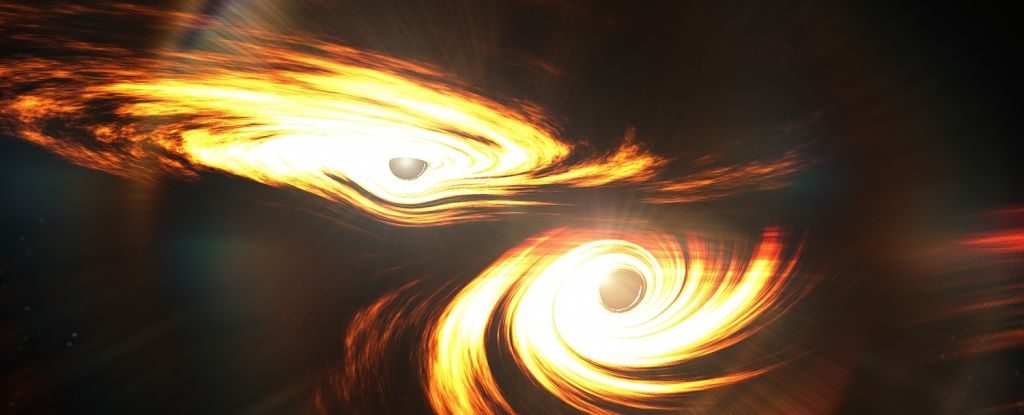Fossils are invaluable archives of the past. They preserve details about living things from a few thousand to hundreds of millions of years ago. Studying fossils can help us understand the evolution of species over time, and glimpse snapshots of past environments and climates. Fossils can also reveal the diets or migration patterns of long-gone species – including our own …
Read More »Science
Record-Sized Collision Between Black Holes Detected by Astronomers : ScienceAlert
Two black holes have collided in a merger that could revolutionize our understanding of black hole growth. Named GW 231123 after the date it was recorded on 23 November 2023, it’s the most massive black hole collision we’ve seen yet, resulting in an object heavier than 225 Suns. Previously, the most massive black hole collision produced an object 142 times …
Read More »Science suffers when meteorites and fossils become an asset class – Financial Times
Science suffers when meteorites and fossils become an asset class Financial Times Want to own a huge chunk of Mars? It could cost you up to $4 million CBS News The biggest piece of Mars on Earth is going up for auction in New York NPR Largest Mars Meteorite Heads To Auction Block The Weather Channel The largest Mars rock on Earth is up …
Read More »The handshake in orbit that made the International Space Station possible
Ben-Itzhak studies what she has termed “space blocs” – the emerging groupings of space nations. Right now, as countries plan a return to the Moon, it looks like the US and Russians will soon go their separate ways. Russia will likely side with China, and Western nations – including Europe and Canada – will coalesce around the US. But there are …
Read More »Big-Bang echoes unmask a billion-light-year hole around Earth—and it’s stretching space faster
Earth and our entire Milky Way galaxy may sit inside a mysterious giant hole which makes the cosmos expand faster here than in neighboring regions of the universe, astronomers say. Their theory is a potential solution to the ‘Hubble tension’ and could help confirm the true age of our universe, which is estimated to be around 13.8 billion years old. …
Read More »NASA’s IXPE Imager Reveals Mysteries of Rare Pulsar
An international team of astronomers has uncovered new evidence to explain how pulsing remnants of exploded stars interact with surrounding matter deep in the cosmos, using observations from NASA’s IXPE (Imaging X-ray Polarimetry Explorer) and other telescopes. Scientists based in the U.S., Italy, and Spain, set their sights on a mysterious cosmic duo called PSR J1023+0038, or J1023 for short. The J1023 …
Read More »Asteroid Three Times Larger Than a Football Field Zooms Past Earth Today
Today, the sky holds an exciting spectacle as 2025 MA90, an asteroid approximately 280 feet in diameter, makes its close flyby of Earth. Traveling at over 20,000 miles per hour, it is set to pass a safe distance of six million kilometers from our planet. While the size and speed of this space rock are certainly noteworthy, there is no …
Read More »Just a moment…
Just a moment… Enable JavaScript and cookies to continue This request seems a bit unusual, so we need to confirm that you’re human. Please press and hold the button until it turns completely green. Thank you for your cooperation! Press and Hold Press and hold the button If you believe this is an error, please contact our support team. 209.74.74.26 …
Read More »A 400-Year-Old Mystery About The Sun May Finally Be Solved : ScienceAlert
Since Galileo first observed them through his telescope in the early 1600s, sunspots have fascinated scientists. These dark patches on the Sun’s surface can persist for days or even months, but until now, researchers couldn’t fully explain why they remained stable for such extended periods. A study published in Astronomy & Astrophysics has finally solved this centuries-old puzzle. An international …
Read More »Earth’s largest waterfall isn’t the one you’d expect
When you try to come up with the Earth’s largest waterfall, there are a lot of factors to take into account. Some might break it down based on sheer size, the flow rate or volume of water coming through it, and more. But, if you ask the National Oceanic and Atmospheric Administration (NOAA), the answer is clear: the Denmark Cataract. …
Read More »







